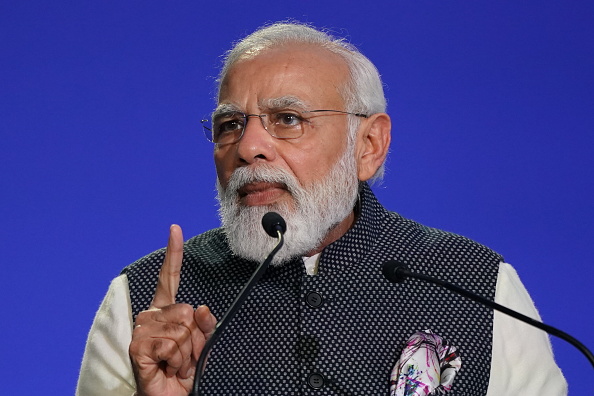India poised to ban private crypto ownership with stringent bill

India’s government will reintroduce a bill which could ban crypto ownership and establish a central bank digital currency.
The bill would see the Indian government ban cryptocurrencies except in cases which promote the underlying technology, according to a legislative agenda for the Winter season which begins on Monday and ends on 23 December.
The cryptocurrency and regulation of official digital currency bill 2021 “would create a facilitative framework for creation of the official digital currency to be issued by the Reserve Bank of India”, the government said in a bulletin.
“The bill also seeks to prohibit all private cryptocurrencies in India,” the Lok Sabha bulletin continued, adding that the bill “allows for certain
exceptions to promote the underlying technology of cryptocurrency and its uses.”
News that the bill is returning to parliament has already sparked a mass sell off amongst investors. The price of the stable coin tether (USDT), a digital asset pegged to the price of the dollar, slumped 25 per cent to lows of $0.8061 on Indian exchanges on Wednesday.
Several Indian trading platforms including WazirX reportedly faced deposit and withdrawal challenges as a result of a high volume of selling.
Nonetheless the impact of the possible ban on the market has been minimal compared to the effect of China’s crypto crackdown.
When China first announced a ban on crypto mining in May it provoked a major market correction which shaved 50 per cent from Bitcoin’s value a month prior.
Commenting on the impact Laith Khalaf, head of investment analysis at AJ Bell said: “India’s plan to ban cryptocurrencies has not wrought the same damage on the Bitcoin price as China’s summer crackdown, but it nonetheless marks yet another stumbling block in crypto’s advancement as an economic force in the real world.”
There are an estimated 15 to 20m cryptocurrency investors in India, with total crypto holdings of around 400bn rupees, according to industry estimates.
Despite taking a tough stance on crypto both countries have signalled an interest in launching a digital currency backed by the central bank (CBDCs). These electronic forms of money capitalise on the popularity of digital assets by facilitating ultra fast, cheap, electronic payments.
The controversial crypto bill was first introduced by the Indian government in January of this year. Last week, Prime Minister Narendra Modi signalled that regulation could be forthcoming when he dubbed crypto a danger to India’s youth.
Bitcoin’s price has fallen by 5.7 per cent this week and is down 0.7 per cent over the past 24 hours to stand at $56,779.
Read more: Digital Rupee: Trial confirmed as worldwide interest in digital currency grows